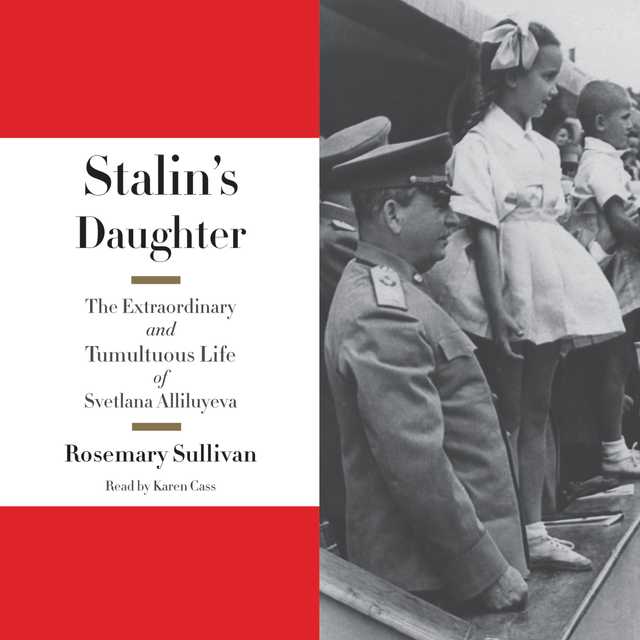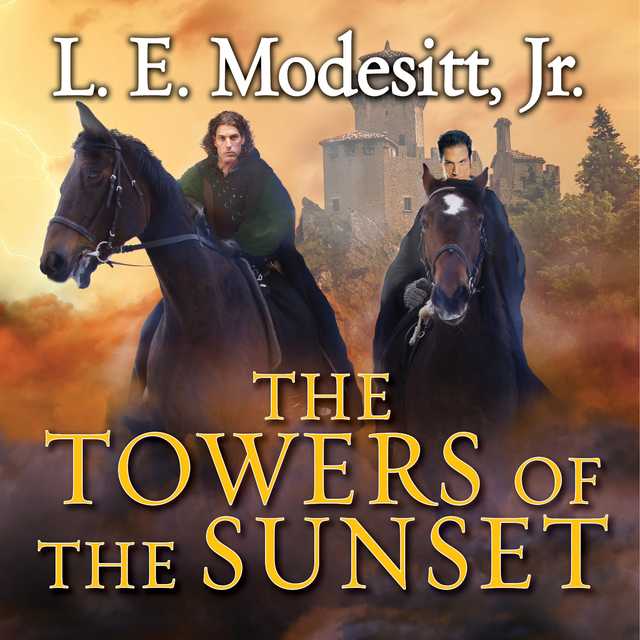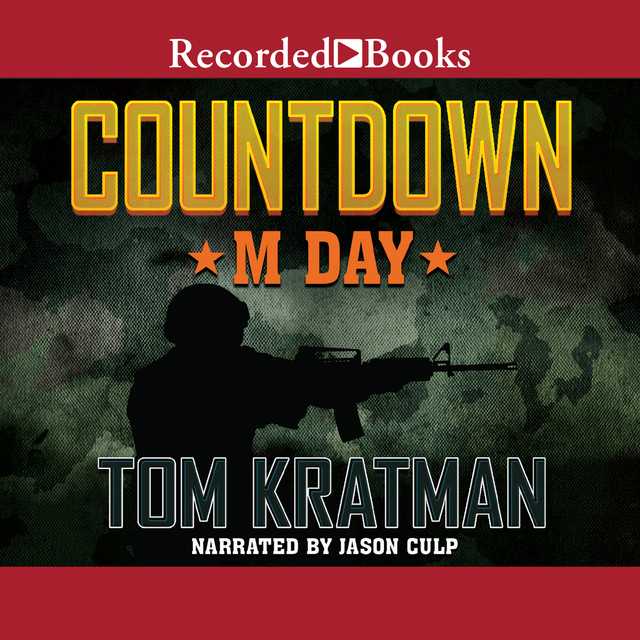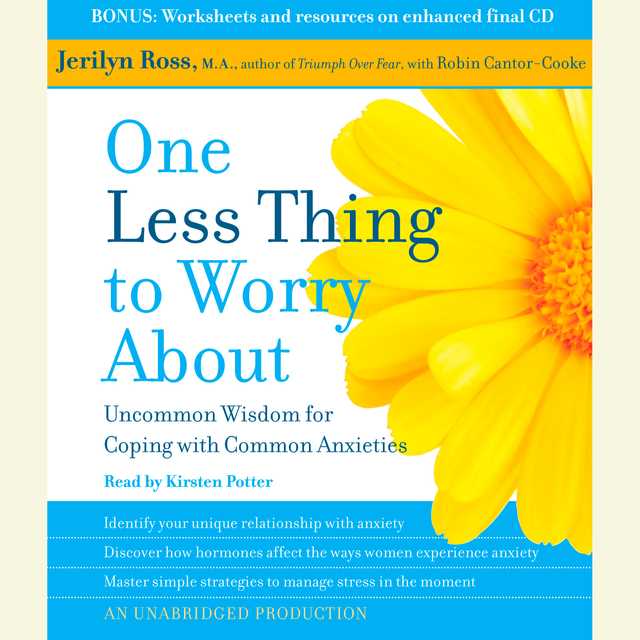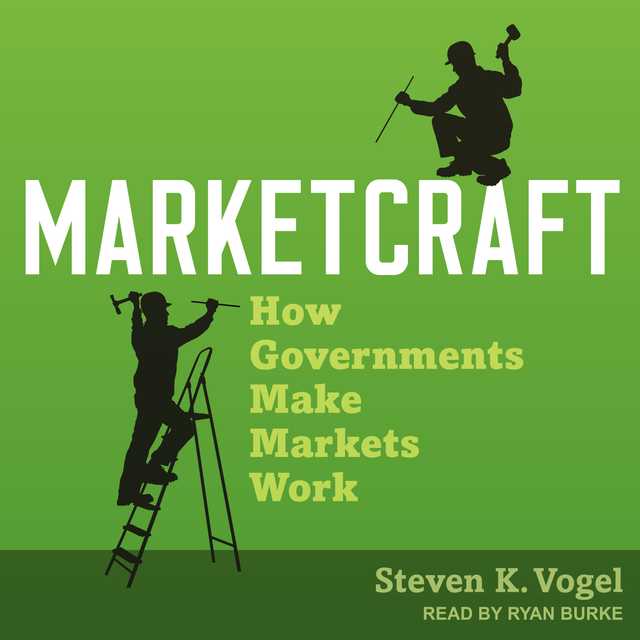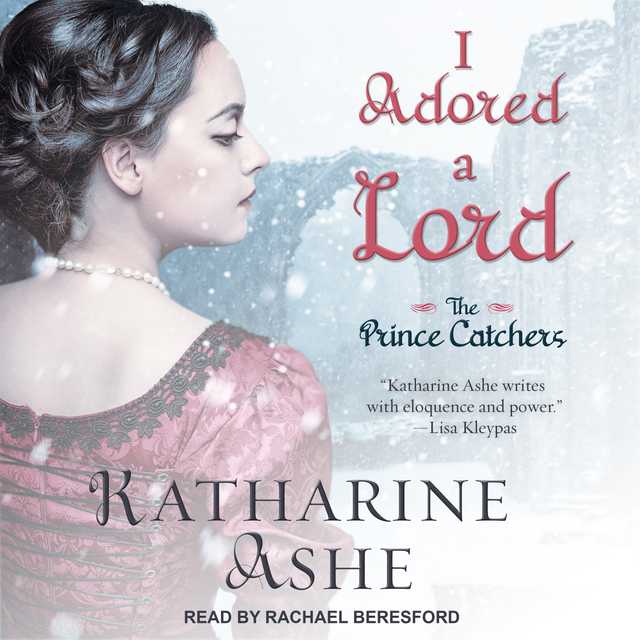Stalin’s Daughter Audiobook Summary
Winner of the Plutarch Award for Best Biography
PEN Literary Award Finalist
National Book Critics Circle Award Finalist
New York Times Notable Book
Washington Post Notable Book
Boston Globe Best Book of the Year
The award-winning author of Villa Air-Bel returns with a painstakingly researched, revelatory biography of Svetlana Stalin, a woman fated to live her life in the shadow of one of history’s most monstrous dictators–her father, Josef Stalin.
Born in the early years of the Soviet Union, Svetlana Stalin spent her youth inside the walls of the Kremlin. Communist Party privilege protected her from the mass starvation and purges that haunted Russia, but she did not escape tragedy–the loss of everyone she loved, including her mother, two brothers, aunts and uncles, and a lover twice her age, deliberately exiled to Siberia by her father.
As she gradually learned about the extent of her father’s brutality after his death, Svetlana could no longer keep quiet and in 1967 shocked the world by defecting to the United States–leaving her two children behind. But although she was never a part of her father’s regime, she could not escape his legacy. Her life in America was fractured; she moved frequently, married disastrously, shunned other Russian exiles, and ultimately died in poverty in Wisconsin.
With access to KGB, CIA, and Soviet government archives, as well as the close cooperation of Svetlana’s daughter, Rosemary Sullivan pieces together Svetlana’s incredible life in a masterful account of unprecedented intimacy. Epic in scope, it’s a revolutionary biography of a woman doomed to be a political prisoner of her father’s name. Sullivan explores a complicated character in her broader context without ever losing sight of her powerfully human story, in the process opening a closed, brutal world that continues to fascinate us.
Illustrated with photographs.
Other Top Audiobooks
Stalin’s Daughter Audiobook Narrator
Karen Cass is the narrator of Stalin’s Daughter audiobook that was written by Rosemary Sullivan
About the Author(s) of Stalin’s Daughter
Rosemary Sullivan is the author of Stalin’s Daughter
More From the Same
- Author : Rosemary Sullivan
- The Betrayal of Anne Frank ?Quien traiciono a Ana Frank? (Sp.ed.)
- The Betrayal of Anne Frank
- Publisher : HarperAudio
- Abraham
- American Gods [TV Tie-In]
- Dead Ringer
- House of Sand and Fog
- Prey
Stalin’s Daughter Full Details
| Narrator | Karen Cass |
| Length | 19 hours 43 minutes |
| Author | Rosemary Sullivan |
| Category | |
| Publisher | HarperAudio |
| Release date | June 02, 2015 |
| ISBN | 9780062417596 |
Subjects
The publisher of the Stalin’s Daughter is HarperAudio. includes the following subjects: The BISAC Subject Code is Biography & Autobiography, Historical
Additional info
The publisher of the Stalin’s Daughter is HarperAudio. The imprint is HarperAudio. It is supplied by HarperAudio. The ISBN-13 is 9780062417596.
Global Availability
This book is only available in the United States.
Goodreads Reviews
Elyse
February 18, 2016
Audiobook!!I've been taking some long trail hikes recently--hiking 2 and 3 hours every other day --Listening to this story became tedious. I certainly didn't get any voyeurism satisfaction ....which at times...I had the thought, the setting creates. We learn the history about Stalin's daughter, Svetlana....The Kremlin Years, The Soviet Reality, Fight to America, Learning to live in the West. We learn basic facts about her mother, her brother, her relationship with her father,( Russian dictator, Joseph Stalin), as a child.. and as a teenager. We learn about her studies in American History, her close friend who was Jewish..and her first love. We learn of Svetlana's first marriage-- the birth of their son. We learn about her second marriage -- the birth of their daughter. We learn about the man from India she loved and married...and his death.We continue to learn Svetlana was a cooperative defector.....a kind, friendly, quiet woman. When she came to the U.S. She left behind her children --- married again in the United States ...birth of 'their' daughter! Whew! By now... MY BODY... was exhausted --- just thinking of all the babies she had!.I was getting exhausted by 'details' and 'names' dropped. Another divorce....another move into another house. Another lover yet to come. ( or maybe I was in need of a break from hiking) ...At times this story was as dry as the dirt I was walking on. For all the 'editor-police-readers'.....you just might add this novel to your pile of books to send to "The Editor's Jail". I would have enjoyed this book just as much - honestly- even if 200 pages were missing. Weeks of listening to this audiobook made my brain hurt after awhile! Yet, author Rosemary Sullivan, makes sure we remember THE MOST NOTED DEFECTOR --in the United States -- in the 20th century! 3.5 stars
Steven
June 27, 2015
When one thinks about the demonic characters that dominated the twentieth century most people do not focus on the impact their lives have had on their offspring. But with Rosemary Sullivan’s remarkable new biography, STALIN’S DAUGHTER: THE EXTRAORDINARY AND TUMULTUOUS LIFE OF SVETLANA ALLILUYEVA we have just such a book. Sullivan’s narrative and analysis is thoughtful and reasoned and by the conclusion of her 623 page effort the reader will feel they have entered a surreal world that explored not only Stalin’s child, but the author of the cult of personality that dominated Russian history from 1924 until his death in 1953. What emerges is a portrait of a child who is raised in the ultimate dysfunctional family. Svetlana had to endure the suicide of her mother, Nadya in 1932, the erratic emotional roll a coaster that was her father, and the demands of being the daughter of a man who was responsible either directly or indirectly for the deaths of between 20 and 40 million people. This leads to a flawed adulthood that saw four marriages, countless love affairs, and a wandering nature that saw her abandon her own children when she first defected to the United States in 1967, later returning to the Soviet Union in 1984 and again in 1986, then traveling to England and finally dying in the United States in 2011.Sullivan has done an extraordinary job in piecing together Svetlana’s life. Relying on her subject’s own published writings and private papers, interviews, and other documents she has prepared an incredible story that would be difficult to imagine. Sullivan begins by describing Svetlana’s defection to the United States which she correctly begins a pattern of escapism and the need to fill an emotional hole in her psyche that is repeated throughout her life. From this point on Sullivan successfully transitions to a description of a childhood growing up in the Kremlin and her interactions with her mother, Nadya, a deeply flawed woman who finally succumbed to the pressures of dealing with an abusive husband by committing suicide when her daughter was only six. What amazed me was Sullivan’s description of the environment which Svetlana was raised. Stalin’s household mirrored that of Tsarist royalty that the Bolshevik revolution was designed to replace. Nannies, special schools, summer homes, pseudo palaces, tennis courts were all part of the picture. Svetlana spent little time with her mother, and Sullivan remarks that her father was more affectionate toward her than her mother. The result was that Svetlana became an emotionally needy child, a state of mind that would dominate her actions for the remainder of her life.Sullivan is able to weave the major events of the Stalinist regime into her biography. Purges, collectivization, show trials of the 1930s, the Nazi invasion of June, 1941, the devastation caused by World War II, and the Cold War are all portrayed in detail through the lens of Stalin’s daughter and the effect they had on her life. The disappearance of family members and others who made her childhood secure made it very difficult for Svetlana as she had no idea why things were happening. Her mother’s suicide was especially difficult, and once she learned the truth as to what occurred during the war her view of her father radically changed and she began to perceive him as the monster that he was. Stalin’s impact on his daughter’s emotional life was profound as he prevented her from pursuing certain relationships, forced her to attend Kremlin events with his cronies late at night in the Kremlin and perform for them, forced her to attend certain schools, but most importantly played a game of withholding his parental love on and off throughout her childhood.It is not surprising that Svetlana evolved into a very confused and emotionally flawed individual prone to impulsive actions to fill the vacuum in her life. “Her first love, the prominent screenwriter Aleksei Kapler, was sent to labor camps when Stalin learned of their courtship. Her half-brother Yakov, with whom she was close, perished in a German P.O.W. camp after Stalin refused a prisoner exchange to save him. Her remaining brother, Vasili, died of alcoholism two days short of his 41st birthday.” (New York Times, “Stalin’s Daughter,” by Rosemary Sullivan, by Olga Grushin, June 12, 2015) Svetlana married Grigori Morozov, a Jewish college student when she was eighteen. Stalin hated Jews as he always believed that there was a Jewish conspiracy against him throughout his life. There was no marriage celebration and Stalin did not meet him before the wedding. By eighteen, Svetlana was pregnant. As her marriage deteriorated and she went through three painful abortions she sought the emotional support of her father that was not there. In this instance and others, Sullivan points out that Svetlana “grew disparate as she did not know how to be alone. Alone she felt totally exposed. She thought she would be safe if only she could entwine her life in another, but then, once she had achieved this, she would feel suffocated, a pattern that would take decades to break, if she ever succeeded.” (136)When her father finally died in 1953, Svetlana’s unstable psychological profile produces feelings of guilt that she was not a good daughter and that she could have done more to help their relationship. Grief can distort one’s feelings and true to her nature her own willful blindness distorted her view of reality. Following her father’s death Svetlana disavowed politics and tried to keep herself as anonymous as possible. However, this goal was constrained by the fact that she was deemed as “state property” by the new government. People’s reactions to her would always be filtered by their view of her father. A greater impact on her life was Nikita Khrushchev’s “DeStalinization Speech” on February 25, 1956 before the Twentieth Party Congress in which the Soviet leader laid bare Stalin’s crimes. Svetlana was terrified that she would be identified with her father and hated, so as usual she withdrew into isolation. By 1957 she would change her name from Stalina to her mother’s maiden name, Alliluyeva. She would become a gossip target because of her failed marriages and sexual affairs, reflecting the contempt that developed in Soviet society for her father. Svetlana suffered from a compulsive need to turn each love affair into marriage. No matter how many bad relationships she suffered she always held on to the belief that marriage would provide a bulwark against inevitable loss. Sullivan is correct in arguing that “at core she was an emotional orphan with a tragic frailty that always threatened to sink her.” (222)Sullivan explores the most important aspects of Svetlana’s journey as she prepares her first memoir TWENTY LETTERS TO A FRIEND. The book explores her “cruel bereavements,” disappointments and losses as she describes her childhood and personal relationships. The book revealed no state secrets and had no political agenda apart from condemning the Stalinist regime. The book would become her financial ticket for the future, especially after she falls in love with Brajesh Singh, an Indian raj who was chronically ill. They would marry, and Svetlana’s desire to return his ashes to India after he died leads her to defect to the United States. The author’s discussion of Svetlana’s defection to the United States after visiting India are fascinating. The diplomatic machinations among the Indian, Italian, Swiss and US governments reflect the political dynamite she represented visa vie the Soviet Union. The work of George Kennan, the esteemed American diplomat and historian, who oversaw Svetlana’s life for decades is accurately described as he locates a publisher for her work and deals with the fallout from her defection and the complexity of her plight. Sullivan’s analysis of Svetlana’s psyche are credible as she describes all aspects of her journey from abandonment of her family in Russia, to her settlement in the United States , and the Soviet campaign to defame her as a capitalist who was playing on her father’s name to become rich.Svetlana’s journey throughout this period was rife with emotional and financial failure as she had no clue how to manage her life. This inability to control herself would lead to numerous personal disasters that make the reader feel a great deal of pity for Svetlana. Sullivan’s descriptions of Svetlana’s many love affairs from the prism of her constant anxieties and fear of loneliness is eye opening. She examines each love affair whether with the Princeton historian Louis Fischer or her four husbands and their impact on her personality and self-worth. The most devastating relationship was her marriage to William Wendell Peters, an architect who was tied to the Frank Lloyd Wright Foundation at Taliesan located in Arizona, a communal situation controlled by a cult leader, Olgivanna Wright, the famed architect’s wife. Svetlana’s marriage would result in financial ruin, a daughter, Olga, and divorce. Svetlana’s life after Peters was dominated by how to raise her daughter which contributed to her wanderings that would eventually lead her to England, a return to the Soviet Union, back to England, and eventually the US.Throughout the book the image of her father seems to dominate. The author’s discussion of Svetlana’s second book ONLY ONE YEAR encapsulates her situation as she continued her struggle to maintain her reputation against Soviet attacks. The book is more than a recapitulation of her voyage from India to the US. She revisits her past as she excoriates her father’s actions and makes the argument that her father was solely responsible for events. She lays part of the blame with those who cooperated without whom the events of the 1930s could not have occurred. She commits the blasphemy in Soviet Communist Party eyes of linking her father’s behavior with Lenin, who she argues created the atmosphere for Stalin’s crimes to be carried out. It is interesting to witness how the Soviet government’s attitude toward Svetlana evolves throughout the 1980s and 1990s as Mikhail Gorbachev tried to implement glasnost and perestroika. Even as leaders of the Soviet Union devote less and less attention to Svetlana’s situation over time, she remains paranoid about what they might do to her to the extent that when she is approaching the end of her life she wants to make sure that the Russian government cannot take advantage of her demise.Sullivan describes a woman who is caught in a cycle of emotional disasters throughout her life as she tries to establish meaningful relationships. Svetlana rebounds from one crisis to another as her confidence suffers from extreme highs and lows. Her impulsive nature and naiveté born of a need to fill the emotional abyss that dates back to her mother’s suicide appears to the underlying psychic motivation of her erratic behavior. For Svetlana setting the historical record straight concerning her life’s story came to dominate her life once her marriage to Peters collapsed. In the end Svetlana’s perceptive nature in dealing with Russian history is offered as she correctly warns the west of who Vladimir Putin really is and what he hoped to achieve. From her viewpoint, a restoration of Russian power by appealing to Russian nationalism, a prediction made in the late nineties and early two thousands that has come to pass. In the end Svetlana Alliliuyeva’s life can be seen as a tragedy born of events and personalities that she could neither control nor understand. Sullivan has written an exceptional biography dealing with another victim of Joseph Stalin’s reign of terror, his own daughter.
Jean
June 16, 2015
I enjoyed this book and learned so much about the early years of the USSR and Stalin’s family. I am always appalled every time I read the numbers of death in Russia from the famine in the 1930 to the number of dead in WWII.Svetlana grew up in the Kremlin surrounded by adoring relatives, governesses and tutors. Her mother committed suicide when she was 6 years old. Svetlana was born in 1926; she lived through the purges, war and the disappearances of most of her relatives into gulags. Her first love, Aleksey Kaples was sent to a labor camp when Stalin learned of their courtship. Her half brother Yaakov, with whom she was close, died in a German P. O. W. camp after Stalin refused a prisoner of war exchange. I was most interested in Svetlana’s meeting with Winston Churchill when he came to meet with Stalin during WWII. Churchill noted her red hair and told her he had also been a redhead when he was young.In 1967, fourteen years after Stalin’s death, Svetlana defected to the United States. Her life reads like a clock and dagger suspense spy thriller. She had three children from three of her four failed marriages, published several books, made money and lost it. She moved constantly unable to stay in one place very long. She died at age 85, nearly destitute in Wisconsin under the name of Lana Peters. I found her comments about Putin most interesting and that she thought the United States was most naïve about Russia.Rosemary Sullivan is an eminent biographer. I enjoyed her biography of Margaret Atwood. The book is well researched, and Sullivan maintains a neutral view of the troubled life of Svetlana. Sullivan allows the reader the freedom of their own interpretation. I read this as an audiobook downloaded from Audible. The book is fairly long at 20 hours; Karen Cass does a good job narrating the story.
Dolores
June 27, 2015
This compelling biography is the intimate and tragic story of a woman fated to live in the shadow of her father, the notorious Soviet dictator Joseph Stalin.When I was a school girl during World War II, I thought "Uncle Joe" was the USA's strong friend, and I was glad that he was on our side. I had no knowledge of his cruelty or merciless purges. As the years went by, I was shocked and horrified to learn the extent of his evil and brutality.I was a little intimidated by the thickness of this book, but totally absorbed as soon as I started reading. I recommend it highly and am indebted to Goodreads for sending it to me free of charge.
Pedro
February 09, 2020
Extraordinária biografia muito intimista e escrita com grande sensibilidade de uma mulher que foi um verdadeiro espírito livre em luta constante com o passado familiar. O relato da vida privada daquele que foi o maior monstro da nossa história é excecional. Recomendo.
Pritam
October 30, 2022
Book: Stalin’s Daughter: The Extraordinary and Tumultuous Life of Svetlana Alliluyeva Author: Rosemary Sullivan Publisher: Harper Perennial; Abridged edition (21 June 2016)Language: EnglishPaperback: 624 pagesItem Weight: 629 gDimensions: 15.24 x 3.18 x 22.86 cm Price: 1554/- What was the heartrending accurate story of Stalin's daughter? What would it mean to be born Stalin’s daughter, to bear the burden of that name for a lifetime and never be liberated of it? In the USSR, Stalin was mythic. He was the ‘vozhd’, the ultimate leader who built the Soviet Union into a superpower and won the war against the Nazis. To his millions of Soviet victims, nonetheless, he was the man accountable for the Terror and the notorious Gulag. In the West, he was extensively demonized as one of the world’s most atrocious dictators. Try as she might, Svetlana Alliluyeva could never break away from Stalin’s silhouette. This book tells her story. The book has been divided into four parts: 1) The Kremlin Years2) The Soviet Reality3) Flight to America4) Learning to Live in the WestOn November the 22nd 2011, in rustic Wisconsin an aged woman passed away at the age of 85. Her name was Svetlana Peters. And she was the last of Stalin's children. Her story is one representative of countless Soviet Russians. The author says, “In the USSR, her life was inconceivably excruciating. Her mother, Nadezhda Alliluyeva, committed suicide when Svetlana was only six and a half. In the purges of the Great Terror in the late 1930s, Stalin did not spare his family. Her beloved Aunt Maria and Uncle Alexander Svanidze, the brother and sister-in-law of Stalin’s first wife, were arrested and executed as enemies of the people; their son Johnik, her childhood playmate, disappeared. Uncle Stanislav Redens, the husband of her mother’s sister Anna, was executed. Uncle Pavel, her mother’s brother, died of a heart attack brought on by shock. When she’d just turned seventeen, her father sentenced her first love, Aleksei Kapler, to the Gulag for ten years. The Nazis killed her half brother Yakov in a prisoner-of-war camp in 1943. In 1947 and 1948, during the wave of repression known as the Anti-Cosmopolitan Campaign, her mother’s sister Anna and Pavel’s widow, Zhenya, were sentenced to seven years in solitary confinement. Zhenya’s daughter Kyra was imprisoned and then exiled…”The steady understanding of her father's brutality her life had been spent, first attempting to flee her father's regime and later striving to step out from the colossal shadow, Stalin had cast over her.Regarding Stalin, Svetlana said, “Wherever I go, here or Switzerland or India or wherever, I will always be a political captive of my father's name.”Svetlana's outlook towards her father was delineated by a contradiction of love and later hate. During her childhood Stalin was kind towards her, openly stating he preferred her over her brothers. However the Soviet leader's paranoia brutality and heartlessness wasn't restrained to the walls of the Kremlin. Over time, Svetlana's independence increased, paralleling her growing comprehension of her father's cruelty.Consequently Stalin became increasingly controlling and Svetlana became just another of his millions of victims. Initially, the Soviet dictator would watch movies with her, bring her presents and refer to her as ‘little sparrow’. During this time Svetlana loved her father. However the piece of her childhood was soon shattered, when at age six Svetlana's mother shot herself, leaving her traumatized.After her mother's death Stalin stopped visiting his children. The love Svetlana had once felt was unexpectedly replaced by desolation. Consequently her childhood became forlorn. At only six she had to overcome the anguish she felt after her mother's suicide, without any support from her father. Neither svetlana nor her brother Vasily was told that their mother's death was suicide, until 10 years later.As Svetlana grew older, she became gradually more conscious of her father's power. At 14 she noticed a friend weeping at school, after their father had been taken during the night. The friend's mother gave Svetlana a letter and asked that she gave it to Stalin. However upon receiving the letter, Stalin would react with wrath, stating that sometimes you are forced to go even against those you love.As a young woman, the liberation Svetlana craved was something her father refused to permit. Stalin became progressively more controlling and attempted to preside over every aspect of her life. Later at 17, Svetlana fell in love with a man named Alexi Kepler. Alexi was 39 and was walking a tightrope which he would soon fall from, when Stalin discovered their relationship.Infuriated by the affair, Stalin had Alexi arrested. Alexi spent the following five years in exile and subsequently another five years in a gulag. This provided the concluding straw for Svetlana and Stalin’s relationship.And from then Svetlana never saw her father in the same light.In 1953 Stalin died and following this Svetlana began to dream of leaving the USSR. But there was no closure for her. The author states, “After her father’s death in 1953, the tragedies continued. Her elder brother, Vasili, was arrested and eventually died of alcoholism in 1962. Her literary friends in the mid-1960s were sent to forced-labor camps. When she finally found peace in a loving relationship with a man named Brajesh Singh, she was officially refused the right to marry him before he died, though she was given official permission to carry his ashes back to India…”After her Indian husband passed, she was granted authorization to visit India in order to spread his ashes.While in India she defected to the U.S. embassy and left the Soviet Union and her two children behind.Upon her arrival, Svetlana censured the Soviet regime and was greeted with open arms. Over the following years she continued to disapprove of the USSR and its conduct of its citizens. Svetlana lived a long life in America, marrying again and having another child. She also wrote and published her memoirs in the United States.However she remained chained to the legacy of her father. Svetlana later stated, “You can't regret your fate although I do regret my mother didn't marry a carpenter.” The author says, ……“she was called unstable. The historian Robert Tucker remarked that ‘despite everything, she was, in some sense, like her father.’ And yet it’s astonishing how little she resembled her father. She did not believe in violence. She had a risk taker’s resilience, a commitment to life, and an unexpected optimism, even though her life spanned the brutalities of the twentieth century in the most heartrending of ways, giving her a knowledge of the dark side of human experience, which few people are ever forced to confront. Caught between two worlds in the Cold War power struggles between East and West, she was served well by neither side. She had to slowly learn how the West functioned. The process of her education is fascinating and often sad.Alliluyeva had as much trouble explaining her father as anyone else did. Her attitude toward Stalin was paradoxical. She unequivocally rejected his crimes, yet he was the father who, in her childhood memory, was loving—until he wasn’t. She sought, with only partial success, to understand what motivated his brutal policies. ‘I don’t believe he ever suffered any pangs of conscience; I don’t think he ever experienced them. But he was not happy, either, having reached the ultimate in his desires by killing many, crushing others, and being admired by some.’ ………Svetlana had as much trouble explaining her father as anyone else did. Her attitude toward Stalin was paradoxical. She unequivocally rejected his crimes, yet he was the father who, in her childhood memory, was loving — until he wasn’t. She sought, with only partial success, to understand what motivated his brutal policies. “I don’t believe he ever suffered any pangs of conscience; I don’t think he ever experienced them. But he was not happy, either, having reached the ultimate in his desires by killing many, crushing others, and being admired by some.”However, she warned that to dismiss him as simply grotesque would be a serious error. The question is what happens to a human being in his private life and within a particular political system that dictates such a history. She always insisted that her father never acted alone. He had thousands of accomplices.A most recommended book for history buffs.
Lena
April 11, 2018
In 1967, Svetlana Alliluyeva walked into the US Embassy in New Delhi and requested asylum. At that point in the Cold war, any Russian defection was a delicate matter, but the defection of of a woman claiming to be Stalin's daughter was a bombshell.So begins Rosemary Sullivan's long but compulsively readable biography of Stalin's only daughter. After the opening chapter, Sullivan jumps back in time to trace the origin story of a girl born into some of the most extraordinary circumstances imaginable. Being Stalin's offspring was no guarantee of special treatment at the hands of one of the most vicious dictators of the 20th century, but while Stalin refused to negotiate for his eldest son's release from a German POW camp, he had a soft spot for Svetlana that afforded her the ability to have a unique relationship with a man who was more concerned about power and building his reputation as an icon than he was his immediate family. Though Sveltlana herself was not in danger from her murderous father, she still suffered mightily as her beloved aunts and uncles began to disappear into the gulags alongside millions of other Soviet citizens. Sullivan does a good job of highlighting how the double-thought that all Soviet citizens had to engage in to survive impacted Sveltana as well, causing her to believe that those disappearances were orchestrated by other Politbureau members manipulating her father rather than face the truth she would finally come to understand after fleeing to the west.Roughly the first half of the book takes place in Russia. It paints a detailed picture of both the challenges and benefits of life among the Soviet elite, as well as the story of one very sad and lonely woman isolated by her unique status. Upon her arrival in the West, it shifts into the story of a woman attempting to establish a new life for herself under the weight of a name she could never really escape.Sveltana's journey takes numerous twists and turns following her defection, one of which finds her becoming prey of Frank Lloyd Wright's Machiavellian widow, Olgivanna. Olgivanna was a disciple of Gurdjieff who turned her husband's experiment in communal living into a spiritual cult under her own direction. Believing the rumors that Svetlana was heir to a mythical Stalin fortune stashed in the West, Olgivanna orchestrated the courtship and marriage of Svetlana to her most trusted lieutenant. Though Svetlana had no use for communal living or spiritual teachers, she was exploited though her deep need for love, one that would ultimately result in the loss of what funds she did have as she attempted to extract her husband from the clutches of Olgivanna.Svetlana left behind two children in the Soviet Union when she impulsively defected, a factor which likely contributed to her inability to settle peacefully anywhere for very long. She is a quintessentially Russian tragic figure, her eloquent composure masking a volcanic temper and an unquenchable longing that complicated her relationships with those who took her under their wings. She may not have survived her struggles had an unexpected pregnancy at the age of 44 not given her her own beloved daughter, a bright spirit who - temporarily, at least - provided her with some measure of grounding as she battled her cultural challenges and inner demons. Svetlana's insight into Russia remained laser sharp as she aged, and it is shocking to read her assessment of Putin and the Chechen bombing he rode to power in the early days of his election. Svelana had no doubt that bombing was staged with the express purpose of bringing Putin and his KGB cronies back into power and I can only imagine how she would feel about their tentacles reaching into the West the way they currently are. Svetlana died in Wisconsin in 2011 a pauper, but she left behind an incredibly rich life story that is well worth reading.
Ellie
October 13, 2020
“Stalin’s Daughter” is an incredibly well-researched and compelling biography of Svetlana Alliluyeva - Stalin’s only daughter. Written in an objective manner, it draws a portrait of a woman who was forced to spend her entire life in her father’s shadow. I personally found Svetlana’s story to be truly tragic. Despite being seen by many as a so-called “Kremlin Princess,” she was a highly intelligent, rebellious, down-to-earth, freedom-loving person whose main goal since childhood was to be treated as someone ordinary instead of being hated or revered solely due to her last name. Several marriages, defections and re-defections, unfortunately, didn’t help Svetlana find her place in a world to which she was either an object of propaganda or counter-propaganda and never just a writer and a woman in desperate need of friendship and love. Stalin destroyed many lives and, inadvertently, his own daughter’s life as well even though I do believe that he sincerely loved her - it’s evident from their correspondence, at least when she was still a young girl. This biography is remarkable because it’s written relying on multiple sources - Svetlana’s daughter, relatives, friends, colleagues, and people who helped her or were in contact with her during different stages of her life. I appreciated that the author wrote it about Svetlana as a person and not Svetlana as a political figure; I feel, this is exactly the biography Svetlana herself would have liked to be written about her. There’s no political agenda of any sort here. The author simply states the facts and lets the readers draw their own conclusions. For these reasons, I would strongly recommend “Stalin’s Daughter” to everyone interested in history and Svetlana as a person.
Charlene
December 01, 2017
This was a really enjoyable biography of Stalin's daughter who at times seemed dramatic, manipulative, and narcissistic and at other times quite humble, genuine, and selfless. Despite compulsively psychoanalyze Svetlana throughout the book, I could never quite figure her out and was always insatiably curious about what it must have been like to have Stalin for a father. The writing was fantastic and brought to life all the family and political dynamics in Svetlana's life. The author detailed some of the more interesting aspects of Svetlana's mother's life, still such a mystery to me, as well as her and Stalin's relationship with her mother's side of the family. We get a glimpse, but never fully get to know, what Svetlana was and was not aware of when her father condemned masses of people to the gulags. Her relationship with her children was every bit as interesting as her relationship with her father. Her defection was nothing less than sensational and even scandalous. I couldn't help but think about this book for weeks after I was finished with it. I scoured the internet for news of her 3 children and tried to learn anything I could that was not covered in the biography. (Her youngest child's life was the most intersting by far). Anytime a book causes me to research further or constantly think about the people who were the subject of the book, I am happy.
Most Popular Audiobooks
Frequently asked questions
Listening to audiobooks not only easy, it is also very convenient. You can listen to audiobooks on almost every device. From your laptop to your smart phone or even a smart speaker like Apple HomePod or even Alexa. Here’s how you can get started listening to audiobooks.
- 1. Download your favorite audiobook app such as Speechify.
- 2. Sign up for an account.
- 3. Browse the library for the best audiobooks and select the first one for free
- 4. Download the audiobook file to your device
- 5. Open the Speechify audiobook app and select the audiobook you want to listen to.
- 6. Adjust the playback speed and other settings to your preference.
- 7. Press play and enjoy!
While you can listen to the bestsellers on almost any device, and preferences may vary, generally smart phones are offer the most convenience factor. You could be working out, grocery shopping, or even watching your dog in the dog park on a Saturday morning.
However, most audiobook apps work across multiple devices so you can pick up that riveting new Stephen King book you started at the dog park, back on your laptop when you get back home.
Speechify is one of the best apps for audiobooks. The pricing structure is the most competitive in the market and the app is easy to use. It features the best sellers and award winning authors. Listen to your favorite books or discover new ones and listen to real voice actors read to you. Getting started is easy, the first book is free.
Research showcasing the brain health benefits of reading on a regular basis is wide-ranging and undeniable. However, research comparing the benefits of reading vs listening is much more sparse. According to professor of psychology and author Dr. Kristen Willeumier, though, there is good reason to believe that the reading experience provided by audiobooks offers many of the same brain benefits as reading a physical book.
Audiobooks are recordings of books that are read aloud by a professional voice actor. The recordings are typically available for purchase and download in digital formats such as MP3, WMA, or AAC. They can also be streamed from online services like Speechify, Audible, AppleBooks, or Spotify.
You simply download the app onto your smart phone, create your account, and in Speechify, you can choose your first book, from our vast library of best-sellers and classics, to read for free.
Audiobooks, like real books can add up over time. Here’s where you can listen to audiobooks for free. Speechify let’s you read your first best seller for free. Apart from that, we have a vast selection of free audiobooks that you can enjoy. Get the same rich experience no matter if the book was free or not.
It depends. Yes, there are free audiobooks and paid audiobooks. Speechify offers a blend of both!
It varies. The easiest way depends on a few things. The app and service you use, which device, and platform. Speechify is the easiest way to listen to audiobooks. Downloading the app is quick. It is not a large app and does not eat up space on your iPhone or Android device.
Listening to audiobooks on your smart phone, with Speechify, is the easiest way to listen to audiobooks.

